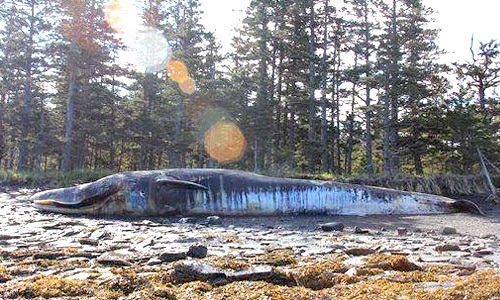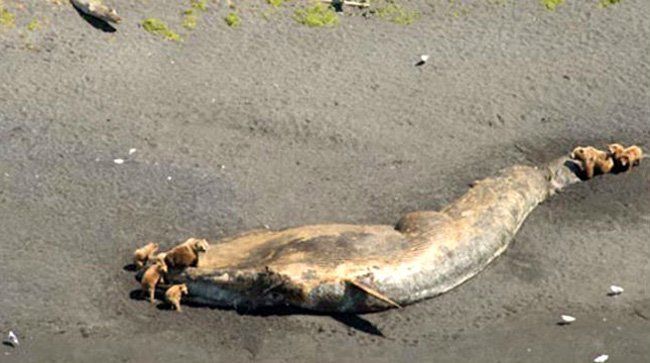

“When algae that produces toxins overtakes a body of water, those toxins make it into the food chain by way of the tiny creatures that feed on it,” reports the Washington Post. “In the case of these sei whales, the scientists studying them hypothesize, sardines poisoned by the algae could have given the whales deadly food poisoning.”
NOAA cautions that these investigations often take months, even years, of data collection and analysis to reach a conclusive answer. So far, scientists working in Alaska have only been able to take the tissue sample of one of the carcasses, which NOAA described as a “less than ideal” sample. That sample tested negative for a type of toxin produced by algae, but the carcass was so decomposed that it may not be reliable, The Alaska Dispatch News reported. The scientists did not find a clear cause of death from that sample and many of the other carcasses have been unretrievable, or too badly decomposed to study.
“Alaska has an awful lot of coastline and much of it is difficult to reach,” NOAA adviser Dr. Bree Witteveen told CBC News. “We can’t get to those carcasses more often than not.” They also have to deal with “predator competition” for sample sizes from the likes of bears and other animals.
NOAA said in an online FAQ that it’s “highly unlikely” that radiation from Fukushima is playing a role, but “further testing is under way.” Some have speculated that warmer temperatures may be to blame. The Alaska Dispatch News reported in June that surface temperatures in the Gulf of Alaska were running 0.9 to 3.6 degrees above average. There is no doubt that Alaska is rapidly warming due to climate change. Alaska’s glaciers are melting even faster than most places along with the rest of the Arctic, which is warming at twice the rate of other regions.
YOU MIGHT ALSO LIKE
NOAA: July Was Hottest Month Ever Worldwide
One of World’s Fastest Melting Glaciers May Have Lost Largest Chunk of Ice in Recorded History
Earth Is Facing Most Severe Extinction Crisis in 65 Million Years

 233k
233k  41k
41k  Subscribe
Subscribe 
